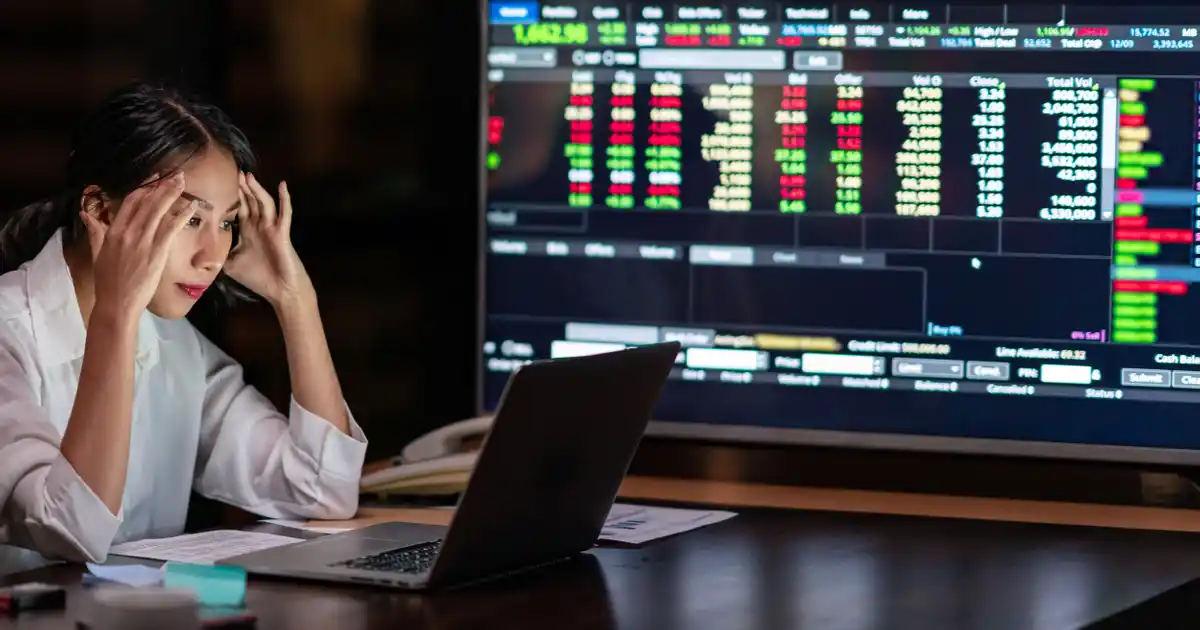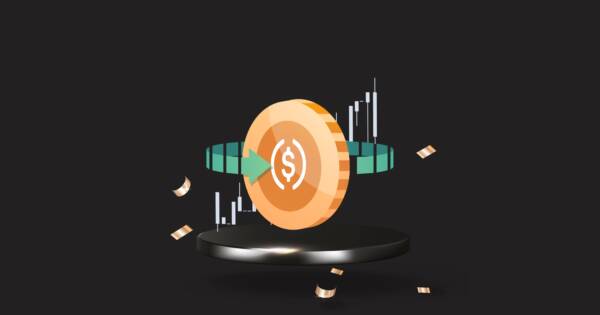If you’ve read the other articles in our “Retire at 55” Learning Path, then you know what a challenge it can be to save up enough money to comfortably retire at such a young age. We’ve talked about budgeting to lower your expenses and taking on gig work to earn (and save) more each month. However, the key to making it all work is what you do with those monthly savings. Which brings us to retirement investing.
Investing can be daunting for newbies. The truth is, though, that retirement investing doesn’t have to be complicated. The hardest thing about retirement investing is not letting our emotions get in the way, says Patrick Geddes, a veteran investment professional and author of the upcoming book Transparent Investing. The smart (and most successful) retirement investors take their emotions out of investing by choosing an investment strategy — often a “boring” one — and sticking with it.
Here are seven investment tips for maximizing your retirement savings and not falling prey to what Geddes calls “emotion-based investing.”
7. Not Maxing Out Your Employer Match
Free money is the best kind of money. If you are lucky enough to work for a company that offers 401(k) matching, it’s a huge mistake to not take full advantage of your employer’s generosity.
A 401(k) is a retirement investment account that many for-profit companies offer their employees. A similar retirement plan called a 403(b) is offered to full-time employees at nonprofit organizations, public schools, and government jobs.
There are several advantages for participating in a 401(k) or 403(b). The first is that your contributions to the retirement plan are “pre-tax.” That means that the amount of money you choose to invest each pay period is subtracted from your taxable earnings. So not only are you investing, but you’re lowering your tax burden in the process.
The biggest advantage of contributing to these accounts is that your employer will often match your contributions, up to a certain limit. The upper limit is usually five or six percent. Let’s say you make $50,000 a year. Six percent of $50,000 is $3,000. If you “max out” your own contributions — meaning you contribute $3,000 or more — your employer will kick in an additional $3,000.
“How many investments guarantee you a 100-percent return immediately for the first dollar?” asks Geddes. “An employer match does that.”
Keep in mind that some employers will only match 50 percent of your contributions up to a limit, but even a half match is still free money toward retirement. Make sure you are getting it all.
 Shutterstock
Shutterstock6. Thinking That ‘Boring’ is Bad
Geddes often compares retirement investing to the choices we make about what to eat. Our brains, which evolved in times of food scarcity, crave foods that are high in sugar, fat, and salt. On a biological level, those foods increase our odds of survival. That’s why junk food lights up so many pleasure receptors — and tastes so good.
Today, most of us are lucky to live in a time of abundance, not scarcity. We now know that eating lots of junk food can lead to a host of chronic health problems. Instead, we should be eating a balanced diet high in fruits and vegetables. In short, we should be eating more broccoli and fewer candy bars. The problem is that our brains are still wired to find junk food exciting and broccoli boring. So, to be healthy, we need to fight our natural tendencies and lean into the boring.
The same is true for retirement investing. There is nothing exciting about an index fund. It’s a type of broadly diversified fund that invests your money in lots of different companies, in the hopes of mimicking the performance of the market as a whole (or a group of companies like the S&P 500). Index funds will never experience dramatic leaps in value (up or down). They are designed to grow slowly and steadily over a long period of time.
Embrace The Broccoli
The far more “exciting” investment strategy is to buy and sell individual stocks. Many people try to make huge windfalls by predicting market movements. But as Geddes has seen, that “exciting” style of investing is almost always a losing game, especially over the long term.
“One of the tricks for a new investor is to get in a broccoli mindset,” says Geddes. For most young investors, that means allocating most (if not all) of your retirement investments in stocks, and keeping them in diversified index funds.
If you have a 401(k), your investments should automatically be diversified and tuned to long-term performance. If you have an IRA or another type of self-employed retirement plan, make sure that most of your retirement money is in a “broccoli-style” index fund.
 Shutterstock
Shutterstock5. Tweaking Your Investment Strategy
Emotion-based investing is another enemy of a successful retirement investment plan, says Geddes. Retirement investing is about playing the long game (30 or more years). It’s not about tweaking your investment strategy in response to every short-term stock market surge or crash.
In fact, Geddes has a mantra that he has found to be excellent investment advice for just about any set of market conditions: sit tight and do nothing.
“What should you do if the stock market is in a full meltdown?” asks Geddes. “Stick to your asset allocation and do nothing. What if the market is booming and can’t possibly go any higher? Sit tight and do nothing. Lots of market volatility? Sit tight and do nothing.”
Again, the safest place to put your retirement savings is into a 401(k) or another type of “set it and forget it” retirement account like an IRA. You are far less likely to make emotion-based decisions if money is automatically coming out of your paycheck (or checking account) each money and being invested in diversified index funds. Free from your meddling, your money will grow.
“The ability to do nothing is actually what leads to a really attractive retirement nest egg at the end of the day,” says Geddes.
4. Not Paying Attention to Fees
Compound interest is a beautiful thing. With enough time, it can grow even modest investments into substantial retirement savings. But compound interest also applies to fees. If you invest in funds with seemingly “low” fees of just 1 or 2 percent, those fees could add up to tens or hundreds of thousands of dollars in lost retirement savings.
Don’t assume, for example, that your company’s 401(k) doesn’t charge fees for managing your retirement accounts.
“The problem with 401(k)s is that there are all sorts of different fee plans out there, including some horror show ones,” says Geddes. “There are 401(k) plans where the average fund expense is 1.5 to 2 percent, which is awful.”
As this Bankrate article shows, even a 1 percent fee can add to substantial losses over time. Let’s say you’re able to invest $10,000 a year for 30 years. When you subtract 1 percent in fees a year and then compound those fees by the 7 percent they would have gained annually if the money had stayed in the retirement account for 30 years, it adds up to a total loss of $133,000.
Compare that to a fund that only charges 0.1 percent. Over the same 30 years, those much lower fees result in a total investment loss of only $19,000.
If you’re shopping for your own retirement account, perhaps a traditional or Roth IRA, then look for funds with very low fees or even zero fees. If your company’s 401(k) carries higher fees, try to convince your boss to switch to a different plan. The good news is that even with higher fees, an employer-matched 401(k) is still a smart investment, says Geddes.
 Shutterstock
Shutterstock3. Buying Into The Day Trading Hype
This tip is a follow-up to Geddes’ advice to keep retirement investments boring. There are lots of people out there, including some of your friends and coworkers, who are day traders. (Or at least think they are day traders.) A day trader is an investment amateur (i.e. non-professional) who buys and sells stocks online.
Websites like eTrade and Robinhood make it easy to buy and sell stocks with relatively low fees. This has lowered the bar of entry for investing to anyone with a bank account and an internet connection. That’s incredibly liberating — but also incredibly risky. Predicting the day-to-day movements of individual stocks is borderline impossible. It’s actually more akin to gambling than actual investing.
The problem, says Geddes, is that your friends (or worse, strangers on social media) who say they’re making a killing as day traders are sharing a highly filtered version of reality.
“They’re only telling you their success stories. If you do the actual math, it’s a far less sexy outcome,” warns Geddes. “The way to make a killing in the stock market is to not try to make a killing. Sock it away and don’t pull it out until you need it in retirement.”
2. Being Cheap With Your Future Self
Saving can be painful. Geddes doesn’t approve when financial advisers say that maxing out your 401(k) contributions is an “easy” way to invest. There’s nothing easy about putting away your hard-earned money for the future, especially when there are so many ways to spend it right now.
“As humans, we’re not always generous to our future selves,” says Geddes. “But you can reap tremendous future benefits by gritting your teeth and investing the highest number you can tolerate.”
Like other investment experts, Geddes is a huge fan of automation. While our pleasure-seeking brain can be our worst enemy when investing, it also has some admirable qualities — like adaptability. If you automatically withdraw $100 or $500 or $1,000 from your paycheck or checking account every month — whatever the maximum contribution you can manage — it will hurt at first. However, your brain will quickly adjust to this new reality.
“Once you’ve locked in that high contribution rate, it’s on autopilot,” says Geddes. Through the miracle (or the math, really) of compound interest, every extra dollar you invest today will pay your future self back handsomely.
 Shutterstock
Shutterstock1. Obsessively Checking Your Retirement Account Balance
Online access to your retirement accounts is both a blessing and a curse. It allows you to easily increase your monthly contribution, for example. Or contact support to ask a question about fees. However, it also allows you to obsess about how much you have in your account every single day. What can cause you to stress over whether it’s going to be enough to help you reach your retirement goals.
Remember, retirement investing is a long game. Stock prices change all the time. Sometimes they fluctuate wildly during a single trading day. Even if you’ve done the smart thing and invested your money in broad index funds, there will still be days when the whole stock market is tanking. There may even be years when the economy is in recession and stock prices take a hit. Don’t sweat it. Just ride out the storm.
During those times, your retirement account balance might stall out or even shrink. If you’re checking your account daily, your brain is going to see that negative growth rate and start to panic. However, there’s nothing worse than pulling out of the market when prices are low.
Successful investors, says Geddes, are not the ones who are brilliant enough to pick the winners. Instead, they are patient enough to hold on through the tough times. He says that Warren Buffet earned 90 percent of his $100 billion net worth after age 65 thanks to compound interest on his Berkshire Hathaway investments.
“Very few people have the investment prowess of Warren Buffet,” says Geddes, “but the patience to hold on and not sell in a panic is available to everyone.”








